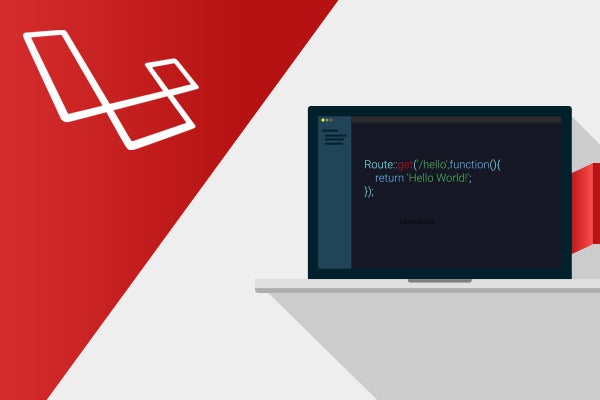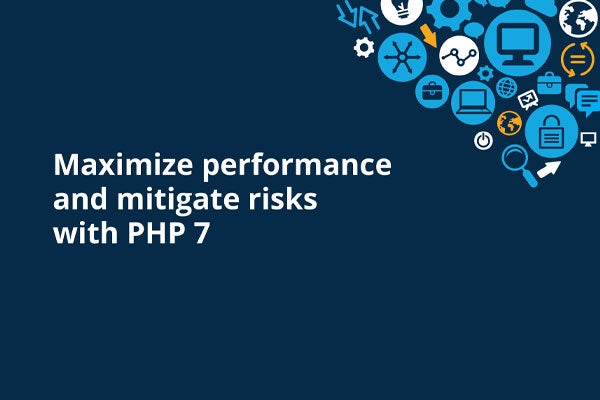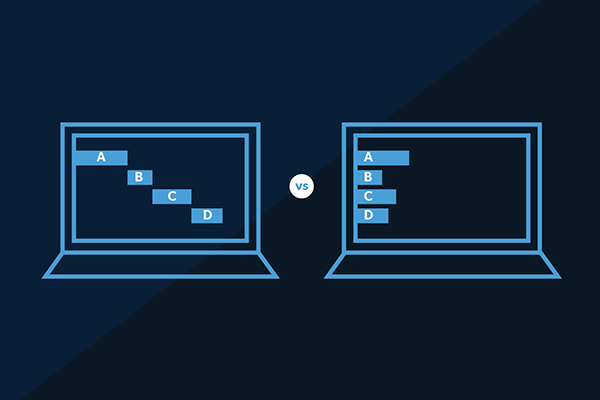
Because PHP is a mature, and well-adopted language, many modern developers are developing web applications, web components, and websites with PHP.
In fact, 79% of all websites — including commercial e-commerce sites, banking sites, and social platforms — are written in PHP.
Whether you are a beginner or advanced PHP developer — or an IT manager — consider this your guide for learning what you need to know about developing web applications with PHP.
Read along or jump to one of the following sections:
PHP is an open source scripting language that can be used to write websites and any kind of web-based application and service. Wikipedia, Vimeo, Etsy, Mailchimp, Yahoo, Wordpress, Flickr, and Magento are just a few of the commercial web apps written in the language.
Why is PHP so popular for developing web applications? PHP:
Read this blog, What Is PHP?, to learn more about PHP — including the meaning of the acronym and the language’s history — and to see a code example.
PHP applications run on a PHP server, such as Zend Server. To learn about PHP application servers, read this blog, PHP Server Basics.
PHP scripts use PHP functions to perform tasks. You can take advantage of the numerous built-in functions in PHP, or write your own. Read this blog, What Is a PHP Function?, for more information.
Global organizations in all industries are continuing to scale their PHP applications and develop new ones. To get a broader view of how organizations are using PHP, read this white paper, The Shifting Landscape of PHP Report.
When it comes to choosing a PHP application server, you have options. You can:
In addition to running Zend Server on-premises, you can also run it as a cloud service in Amazon Cloud Services (AWS), Microsoft Azure, or Google Cloud.
Explore your options for running Zend Server in AWS by reading these blogs:
If you are interested in using Magento for an e-commerce site — or if you are already using the platform — you can save time and money by using Zend Server. Understand how by exploring these resources:

As an open source project, the public PHP community maintains PHP releases, including security patches and bug fixes, for two years from the initial release date. For an additional (third) year beyond the initial release, the community provides security updates only. You can manually download and install these updates, or you can opt for automated updates by using ZendPHP Enterprise or Zend Server.
Today, the organization provides comprehensive support for the current version, which is PHP 7.4. Organizations can get long-term support for PHP 5.6 and 7.1, which are no longer supported by the community, from Zend. You can read more in this blog, Use PHP 7 or PHP 5? Get the Long-Term Support That You Need.
Today, many global organizations are running heavily trafficked, mission-critical websites on PHP 5.6 and 7.1. However, as this blog explains, running a supported version of PHP is critical for many reasons, including security.

Companies who are struggling to find the time and resources to manage an upgrade have options. The following documents explain how you can keep your PHP releases current and save time and money:
PHP 7.4 is the most current release. These resources detail the new capabilities it gives developers:
Even though PHP is easy to learn, you can accelerate your development and minimize application errors by using a PHP framework. One of the most widely used frameworks is Laminas, which is an open source project formerly called Zend Framework.
The Laminas community manages and supports the framework. However, if you use it for corporate solutions, you can get long-term support for Laminas from Zend.
These resources provide general information about Laminas:
If you are using Zend Framework 3, get detailed information about using it in these documents:
As you begin to create applications and services using PHP, it is important to understand PHP extensions, the PHP Foreign Function Interface (FFI), and best practices for security.
PHP developers can use PHP extensions and a foreign function interface to add capabilities to their applications. To learn more about these advanced PHP capabilities, explore these resources:
Websites and other public-facing web-based applications and services are particularly vulnerable to hackers because they are accessible via browsers. This is why it’s critical to follow PHP best practices for ensuring security.
It’s also helpful to understand how the community manages security issues in the PHP engine, and how you can use these same principles to improve the security of your web applications. Explore these resources for more information:
Many organizations also face added data protection challenges, especially in heavily regulated industries such as financial services and healthcare. Whether your applications have stringent security requirements or not, explore these blogs to learn about cryptography and how to protect personally identifiable information:
While development models have evolved dramatically over the past decade, many applications are still using traditional synchronous models, which slow performance. You can improve the speed of your PHP applications by writing code that can multi-task using the asynchronous model.

Another way you can speed up application performance — and improve insight into performance — is to use built-in tools in Zend Server. Read these resources to learn more:
For more than a decade, companies have been improving the efficiency of development teams and bringing better products to market, faster, by adopting continuous integration workflows. Read how DevOps and continuous delivery can dramatically save time and improve quality:
Companies that use the IBM i platform can create modern, web-based applications that run natively on IBM i by using PHP. In addition to using IBM i data stores, PHP services can also use existing IBM i application logic.
Zend Server runs on IBM i. As a result, IBM i users can gain all the benefits of the PHP application server including the built-in tools for automated debugging, monitoring, and deployment.
Explore these resources to see how IBM i users can innovate and make use of their existing systems:
Start your free 30-day trial of Zend Server today.